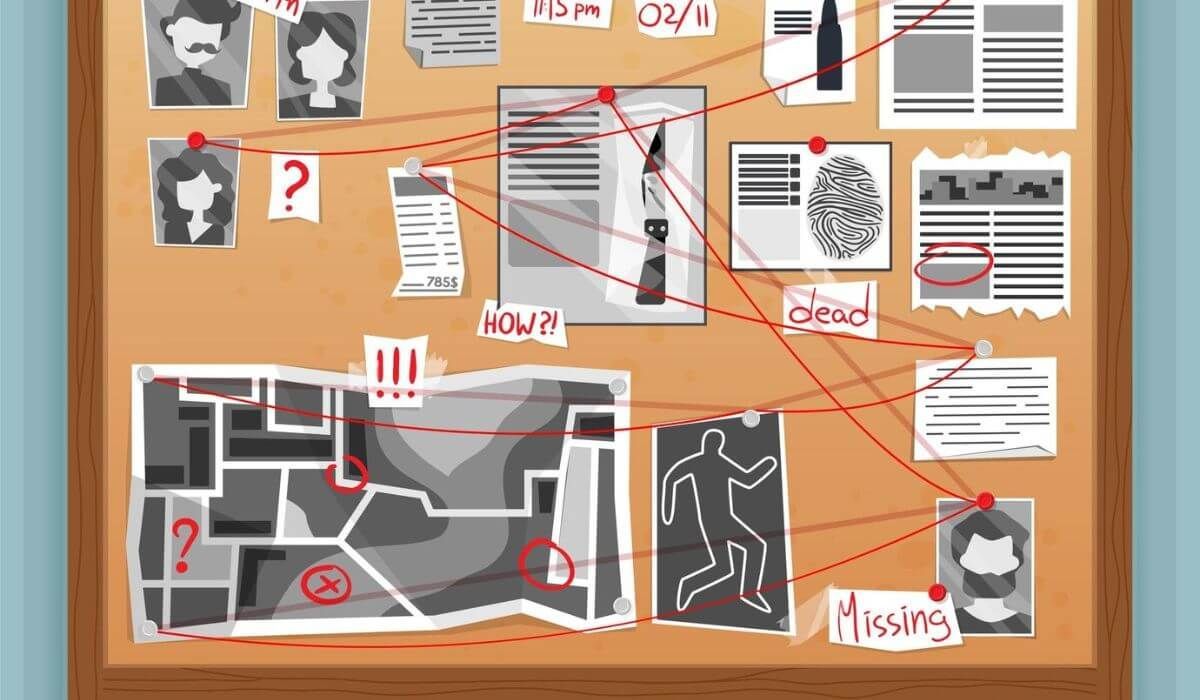Challenges Private Investigators Face in Complex Cases
As a private investigator, you get used to the challenges that come with solving cases. But in complex cases, the obstacles can feel like a whole different level of difficulty. From dealing with intricate details to navigating the emotional and legal landscapes, the job demands a mix of patience, experience, and expertise. Let’s dive into some of the biggest challenges you’ll face in complex cases and how to manage them.
Uncovering and Analyzing Overwhelming Amounts of Data
One of the first things that stands out in complex cases is the sheer amount of data you have to sift through. Whether it’s an intricate financial case, a corporate fraud investigation, or an infidelity case that involves multiple people and events, the volume of information can be overwhelming.
Real-World Example
In a recent corporate fraud case, I was tasked with identifying discrepancies in financial records. The company had thousands of transactions over several years, and the challenge wasn’t just collecting the data but knowing which parts were relevant. Sifting through that data while keeping track of the case’s nuances took a great deal of time and precision.
Tip: To manage overwhelming data, I recommend staying organized from the outset. Use software to track your findings and categorize them. This helps you avoid missing key details and makes the process more manageable.
Following the Right Leads Without Getting Distracted
In complex investigations, it’s easy to get sidetracked. When you have multiple people involved, conflicting stories, and a labyrinth of connections, it's easy to lose focus. The trick is to stay on the right track and avoid the noise that may not lead to anything significant.
Real-World Example
In a cheating spouse investigation, clients often provide us with numerous leads about where their partner might be or who they might be seeing. It’s easy to get lost chasing each one down, but not every lead is critical. Focusing on the key pieces of evidence is essential to stay efficient.
Tip: Stick to your strategy. Break down the case into smaller, manageable pieces and prioritize the leads that are most likely to provide concrete evidence. Be disciplined about not chasing every potential lead if it’s not central to the case.

Legal and Ethical Boundaries
Navigating the legal landscape can be one of the trickiest aspects of private investigations. In complex cases, you may find yourself walking a fine line between gathering necessary evidence and violating someone’s rights. Whether it’s dealing with privacy issues, understanding the limits of surveillance, or ensuring that all actions taken are legally compliant, maintaining ethical standards is key. This is especially important when considering
how private investigators contribute to legal proceedings, as their findings can directly impact court outcomes and client decisions.
Real-World Example
In a recent due diligence case for a business client, I was tasked with investigating the background of a potential business partner. While I had access to a range of information, I had to be careful about how I used publicly available data and ensure I didn’t cross legal boundaries in the investigation. This meant doing thorough checks without overstepping legal lines that could jeopardize the case or the client’s position.
Tip: Always stay informed about the legal requirements in your jurisdiction. When in doubt, consult with a lawyer to ensure your actions are in line with the law. This helps you avoid unnecessary risks and ensures your evidence is admissible in court.
Dealing with Emotional Clients
Complex cases often involve highly emotional situations, and as an investigator, you need to be prepared for the emotional toll on your clients. Whether it's a divorce case, a missing person investigation, or a case involving fraud, clients often have heightened emotions that can cloud their judgment. Unfortunately, misconceptions about investigative work can sometimes make these situations even more challenging. Many people still believe widespread misconceptions about private investigators, such as thinking they have unlimited legal authority or can break privacy laws, which can create unrealistic expectations.
Real-World Example
During a child custody investigation, the client’s emotions were understandably high. They were seeking evidence to prove the other parent’s unfitness, which was a stressful and emotionally charged situation. While I had to maintain objectivity and focus on the facts, I also had to handle the client with care and offer reassurance along the way.
Tip: Stay calm and focused, but don’t underestimate the importance of showing empathy. Let your clients know you understand their concerns, but always remind them that your role is to gather facts and present clear, actionable evidence.

Uncooperative or Elusive Subjects
One of the most frustrating aspects of complex investigations is dealing with uncooperative or elusive subjects. Whether it’s a witness who won’t cooperate, a suspect who’s skilled at covering their tracks, or a person actively trying to avoid surveillance, this is a challenge many investigators face.
Real-World Example
In a surveillance case for a client suspecting their spouse of infidelity, I had to track the subject across multiple locations. The subject was cautious and would frequently change their routine to avoid detection. This added layers of complexity to the case, requiring more time and resources to track their movements.
Tip: Patience is key. Stay persistent and adaptable. If one method of investigation doesn’t work, be ready to switch gears and try something else. Also, always document your efforts; even if you don’t gather evidence right away, a record of your attempts can sometimes serve as valuable proof.
Balancing Time and Resources
Complex cases often demand significant resources—whether that’s time, personnel, or technology. Managing these resources efficiently is crucial, as cases can quickly become resource-intensive. It’s important to balance the urgency of the case with the reality of your available time and budget.
Real-World Example
When handling multiple surveillance operations simultaneously, I had to allocate my team’s time carefully to avoid burnout while ensuring each case got the attention it needed. This required careful planning and prioritization of tasks to ensure no one was overwhelmed, and every case received adequate attention.
Tip: Always plan ahead. Estimate how much time each step of the investigation will take, and factor in unexpected delays or complications. If the case is becoming too resource-heavy, consider delegating or bringing in extra help.

Gathering Physical Evidence Under Pressure
In some complex cases, physical evidence is the key to unlocking the truth. Whether it's a signature, a document, or a piece of material evidence, gathering it can be tricky, especially when you're up against time constraints. The pressure to obtain physical evidence can be intense, particularly if the case is urgent or high-profile.
Real-World Example
In a corporate espionage case, my team and I were tasked with securing a critical piece of evidence—a stolen hard drive that had sensitive company data. The challenge wasn’t just finding it, but obtaining it without alerting the suspect. The pressure to act quickly was immense.
Tip: Stay calm and methodical when collecting physical evidence. Rushing can lead to mistakes. If the case is sensitive, work with a team you trust, and always be mindful of your surroundings.
In complex cases, every step of the investigation requires careful thought, planning, and execution. The challenges may seem daunting at times, but with the right mindset, tools, and strategies, they can be overcome. Remember to stay focused on the facts, keep your legal and ethical standards intact, and never lose sight of the bigger picture. Your experience, patience, and perseverance are your greatest assets when navigating the complexities of any investigation.


